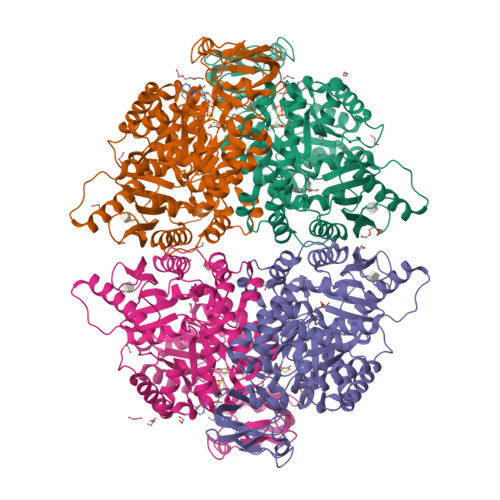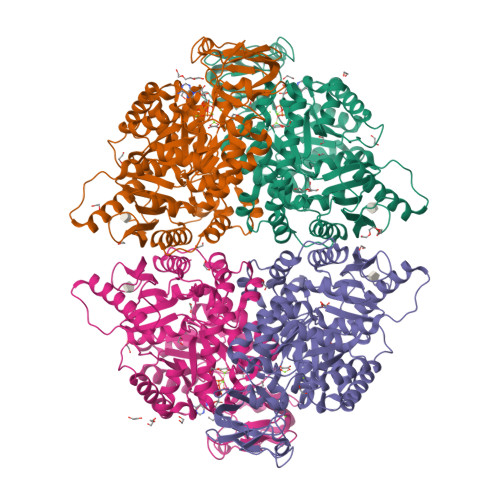Distinct Hepatic PKA and CDK Signaling Pathways Control Activity-Independent Pyruvate Kinase Phosphorylation and Hepatic Glucose Production.
Gassaway, B.M., Cardone, R.L., Padyana, A.K., Petersen, M.C., Judd, E.T., Hayes, S., Tong, S., Barber, K.W., Apostolidi, M., Abulizi, A., Sheetz, J.B., Aerni, H.R., Gross, S., Kung, C., Samuel, V.T., Shulman, G.I., Kibbey, R.G., Rinehart, J.(2019) Cell Rep 29: 3394-3404.e9
- PubMed: 31825824
- DOI: https://doi.org/10.1016/j.celrep.2019.11.009
- Primary Citation of Related Structures:
6ECH, 6ECK - PubMed Abstract:
Pyruvate kinase is an important enzyme in glycolysis and a key metabolic control point. We recently observed a pyruvate kinase liver isoform (PKL) phosphorylation site at S113 that correlates with insulin resistance in rats on a 3 day high-fat diet (HFD) and suggests additional control points for PKL activity. However, in contrast to the classical model of PKL regulation, neither authentically phosphorylated PKL at S12 nor S113 alone is sufficient to alter enzyme kinetics or structure. Instead, we show that cyclin-dependent kinases (CDKs) are activated by the HFD and responsible for PKL phosphorylation at position S113 in addition to other targets. These CDKs control PKL nuclear retention, alter cytosolic PKL activity, and ultimately influence glucose production. These results change our view of PKL regulation and highlight a previously unrecognized pathway of hepatic CDK activity and metabolic control points that may be important in insulin resistance and type 2 diabetes.
Organizational Affiliation:
Department of Cellular and Molecular Physiology, Yale University, New Haven, CT, USA; Department of Systems Biology Institute, Yale University, New Haven, CT, USA.




























